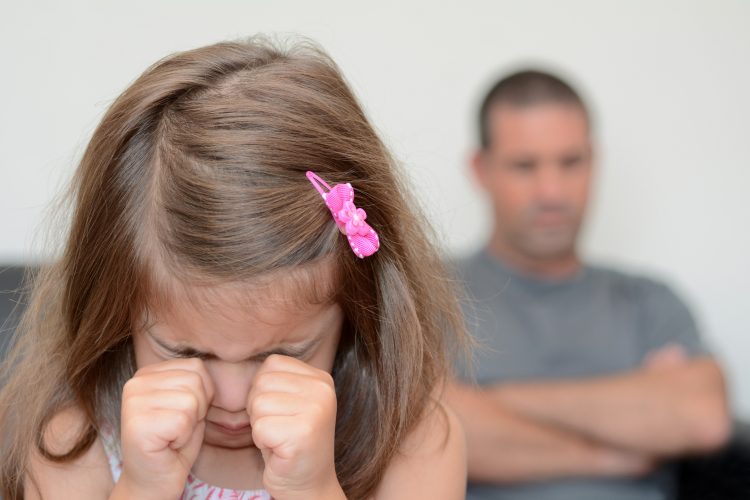
Threatening man behind sad little girl.
In previous articles it was discussed the correlation between dysfunctional behavior and child abuse, its psychological effects on the brain, the negative effects of spanking and the ethical nature of corporal punishment. This piece shall be a summation of such writings.
Adverse Childhood Experiences (ACEs) are extremely prevalent. Sexual and physical abuse is far too rampant and nearly all mothers report striking their infant within the child’s first year of life, often with sticks or belts.
Treatment of a child during early development is one of, if not the single greatest determining factor to dysfunction later in life. Highly traumatized individuals attempt self-medication by abusing drugs, alcohol or cigarettes.
ACEs have a graded association with chronic depression and antidepressant medication. Because such medication is psychotropic, it can often lead to violent tendencies, continuing the cycle of dysfunction. Furthermore, an increase in traumatic childhood experiences corresponded with a greatly increased rate of suicide. Individuals with seven or more ACEs are thirty-two times more likely to attempt suicide than people who experienced no trauma in their childhood.
Biologically, it makes sense why traumatized children are likely to develop dysfunction later in life. Because 90 percent of the brain develops within the first four years of life, negligence and child abuse have such disastrous tolls on the brain.
Individuals who experienced childhood distress had physically different brains than those who had stress-free childhoods. ACEs cause the prefrontal cortex to shrink while the amygdala enlarges and becomes hyperactive. As a result, the ability to rationally think diminishes while the instinct to fight is abnormally strong.
Dr. Elizabeth Gershoff’s comprehensive meta-analysis of over 88 studies concluded, unquestionably, that spanking leads to aggression, antisocial behavior, physical injury, mental health problems, and even a substantial decreases in IQ.
Despite these horrific effects of childhood trauma, the most popular technique to discipline children is through physical violence: spanking. It is a widely used weapon in parents’ arsenal of punishment. Despite nearly universal data that condemns the practice of spanking, nearly all parents still hit their children.
Parents should treat their children better than servers that bring out their food, better than the police officer that pulls them over for speeding, better than their boss when asking for a raise, better than their pastor – better than anyone else in their lives.
Parents must – if they care for the sanctity of their child’s mind and body – immediately cease spanking before further irrevocable damage occurs. This is not an issue to set aside, nor one to take lightly. There is so much wrong in the world it can seem overwhelming and perhaps impossible to repair.
A single individual may not have much political or social power but a group of dedicated individuals can change the world. Anyone who wishes to improve society must first examine the family. Violence against children must stop now. It must stop today and it must stop forever.
Photo courtesy of americanspcc.org.
